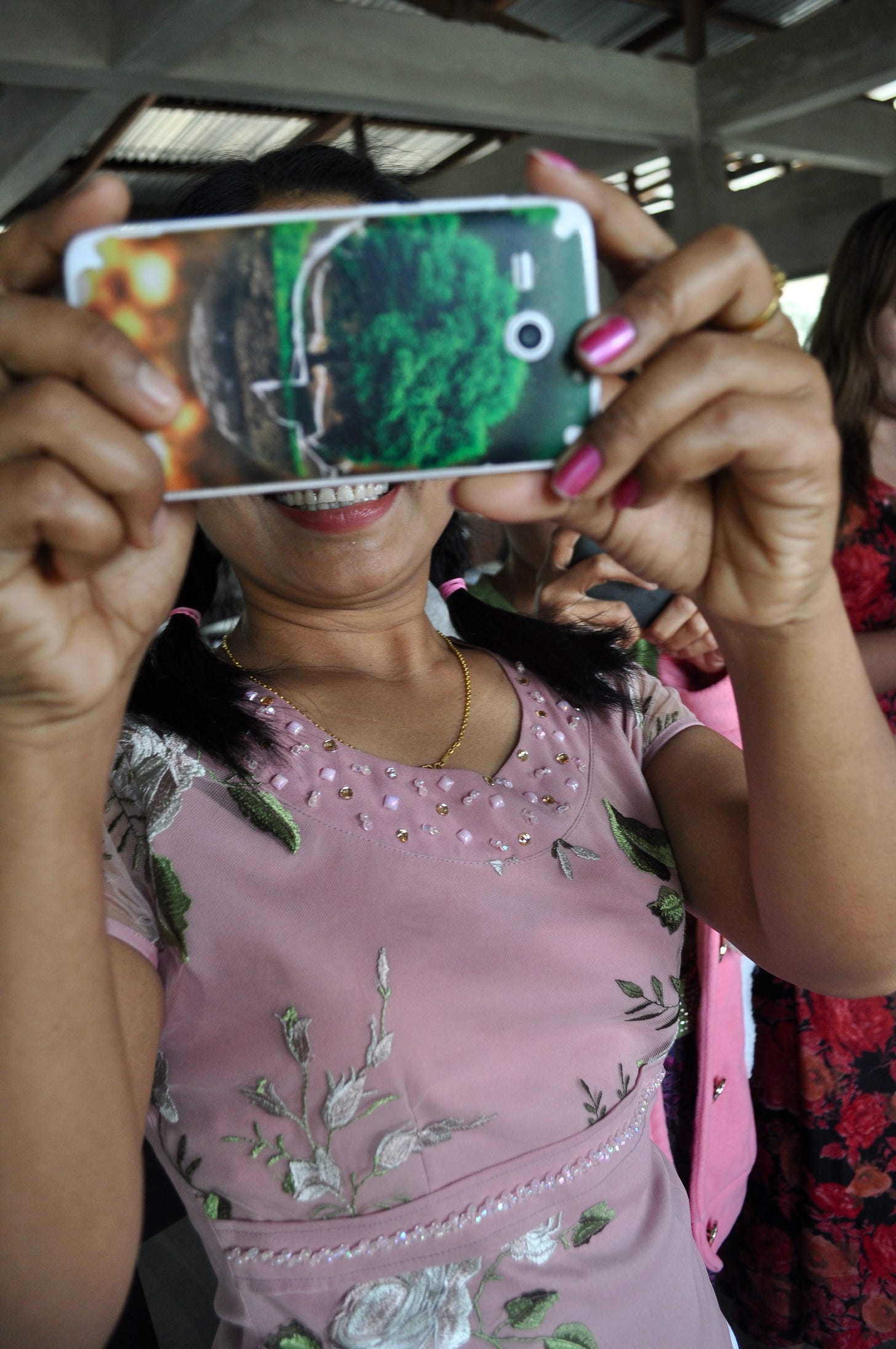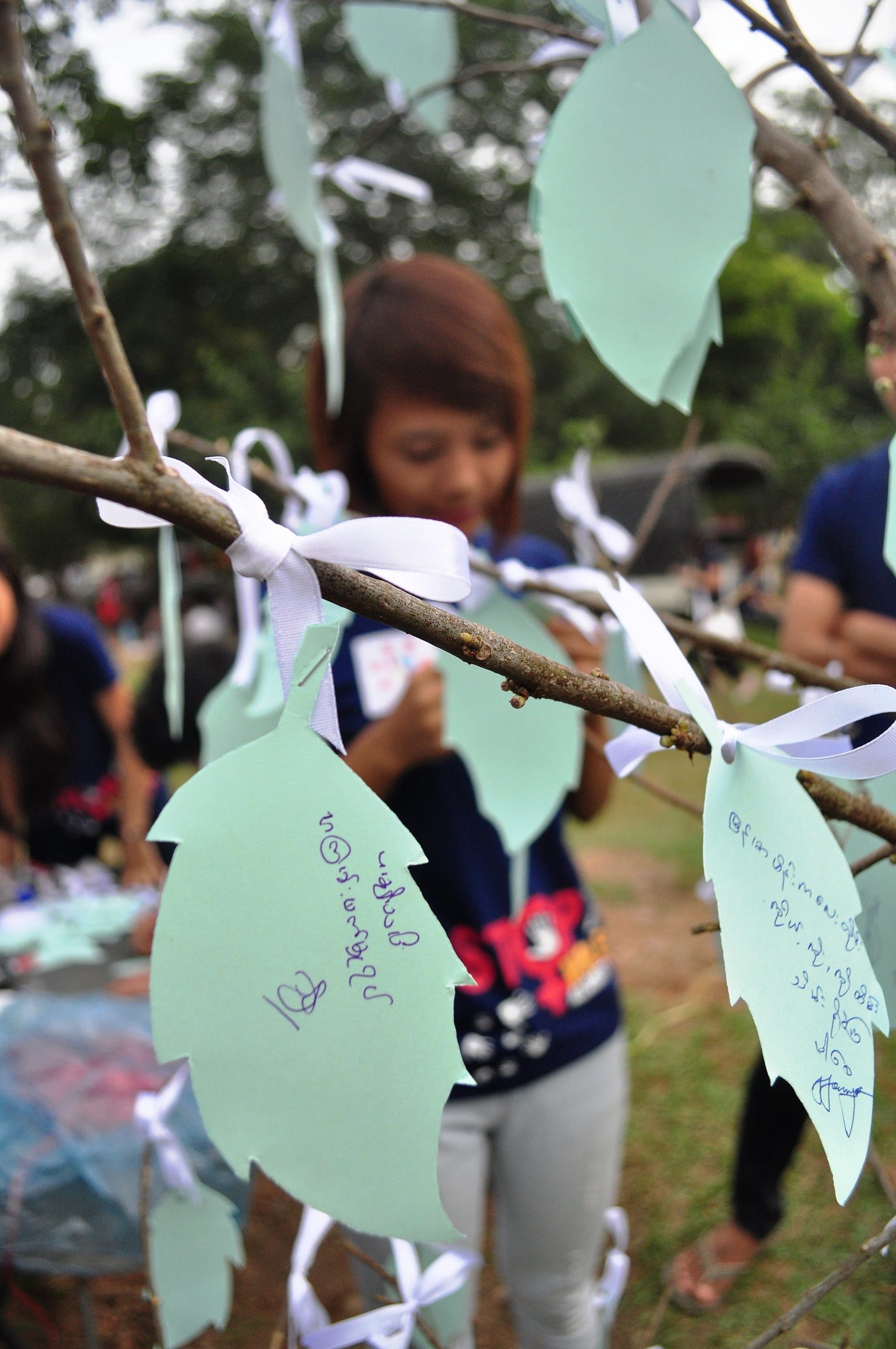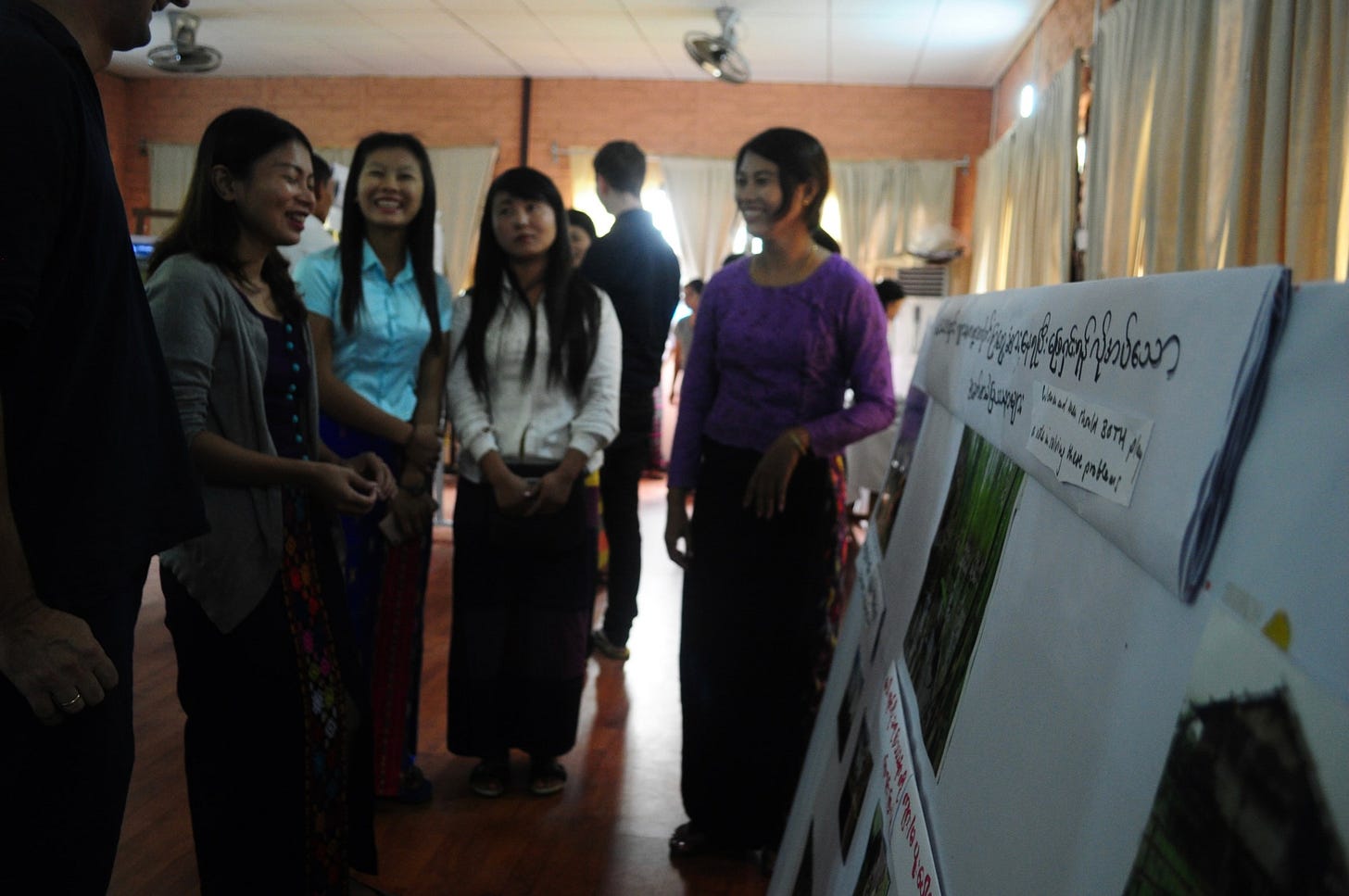What Happened To Those Dreams?
From future ambition to four years of military rule in Myanmar
For one of my last projects in Myanmar, I interviewed young women working in the energy sector in jobs traditionally seen as ‘male roles’. These women were in their early twenties and had lived out their adolescence during the ten years Myanmar opened up to the rest of the world.
As businesses, NGOs and the internet arrived in their country, these young women got to discover things like pizzas with stuffed crusts, shopping malls with moving walkways and mobile phones with different coloured covers.
And now, as they entered the world of work, they were imagining careers that hadn’t existed for their mothers. Exploring the idea they might, one day, become workplace leaders - CEOs or managers. New dreams they were working up the courage to claim for themselves.
That research was never published because a few months later the army locked up leading MPs in the middle of the night and by early morning arrived to the capital, Nay Pyi Daw, to abruptly, and with a quietly surreal efficiency, claim back military control.

Learning to trust democracy
I arrived in Myanmar in 2012, around a year after the same military had announced a transition to democracy. A place, where, despite the new political changes, was oddly quiet: streets almost empty of cars, mornings filled with the calls of birds and chants of monks.
The political transition, while welcomed was not trusted. In those initial years, before the first election took place in 2015, NGOs, media, companies and civilians slowly tested the limits of the military’s intentions, whispering theories about what was really going on; over time, building a sense of confidence that this new ‘disciplined democracy’1 might be real.
On the day of the 2015 election, I was instructed to stay inside, stockpiled with tinned food and candles, while my Myanmar friends and colleagues jubilantly headed out to vote in the first election in most of their lifetimes. The whole country held its breath.
But there was no abrupt military reaction and in early 2016 Aung San Suu Kyi became the first democratically elected leader of Myanmar since 1962. The country gliding into a democratic future with ease.
They have invested too much to go back, I remember being told as the years went on, as new money poured into Myanmar, new bridges and supermarkets and special economic zones appearing around the country. Military rule is no longer in the military’s interest.
Yet, it turned out that ten years of almost democracy was enough.
The coup came suddenly and with it, many newly discovered freedoms slipped away. As did much of the foreign aid, international investors and foreign media. Leaving the Myanmar people to dreams that had been planted but not quite blossomed.

Four years after the coup
Yesterday it was four years since the military coup d’etat in Myanmar - which happened on 1221 (the numerical poignancy was important and sadly memorable).
When I read about the country these days, I wonder what happened to the women I interviewed for that project. Those twenty-year-olds who had grown up in a time of possibility, who had such big hopes and dreams for their futures, and who must have had to reconcile those new ideas with the violence and disruption that the new complex reality created.
(It is not just politics either - the multiple challenges of the military coup, conflict, COVID-19 and environmental degradation have been called a ‘polycrisis reshaping every aspect of life’ by UNDP. And those women dreamed of careers in the energy sector when now, almost half the country’s population is without access to electricity.)
In the last four years, many young people have fled the country to escape imprisonment and crackdowns (there are over 20,000 political prisoners in Myanmar jails), escape the now obligatory military conscription for 18 -35-year-olds, or seek economic opportunities (I meet many of them in hotels and restaurants of Dubai).
Other young people, who might have dreamt of university and office jobs, have instead learned to fire guns, joining the numerous civilian armies using arms to counter the military. And, despite very little international news coverage of a conflict which has already claimed over 50,000 lives2, those civilian armed groups have claimed large areas of territory.34
But, I am not writing to fill your inbox with the details of this conflict. I am writing to share the story of these young women, who were dreaming up their futures when a military coup came along.

Friends,
Myanmar has been on my mind this week, as you can tell.
I feel conflicted about writing about the conflict - as, while I feel enraged that, despite being one the most violent and deadly conflicts worldwide, it gets so little news coverage. I also know, from personal experience, that spending too much time reading about brutality does little to change it.
Yet, I don’t believe we should turn away, particularly as we cannot separate the colonial and capitalist legacies, which we are all caught up inside, from Myanmar’s current situation.
I hope that sharing some of my memories from almost ten years in Myanmar can offer a softer way to connect to the stories and struggles of people there.
As always the comments are open for your ideas, insights and conversation.
(There is a wee bit of background on the audio - let me know if it is too annoying and I will re-record).
If you want to read more about Myanmar, here are some other pieces about living and working there:
Disciplined democracy was a term used to describe the county’s new governance model. It allowed for democratic elections and larger degrees of freedom of speech/press - but also retained 25% of seats in all Parliaments for the military as well as retained military control of certain ministries.
Myanmar is facing the second-highest level of conflict worldwide and it is the third deadliest (2024 data) (Palestine has the highest level of conflict and Ukraine is the deadliest).
Of course, let’s not idealise rule by armed groups, which brings its own form of ad hoc and unregulated governance. But this territorial gain does show the grassroots power and potential to counter the central military government.









Thank you for bringing their stories. What horrors they continue to go through.
I didn’t know a lot about the conflicts in Myanmar until I read this and I really appreciate you highlighting these hidden stories. It is hard to digest all the horrific wars happening across the world, but we can’t turn away.
Thank you Catriona for this poignant story of your research and bringing attention to the horror of what’s happening in Myanmar it’s a terrible anniversary to have to be marking. My oldest and dearest friend and her family lived in Yangon from 2010-2020 and are still in daily contact with people there, so am hearing from her, often very distressed, about what’s going on there. It’s hard to fathom the suffering in the country, and so tragic to see hard won freedoms and opportunities disappear from the lives of the young especially. Many refugees are in Thailand, where my friend is now too. Last week she tells me Myanmar refugee schools there were closed down and teachers arrested. Hard and disheartening times indeed. From what I hear, knowing that people outside of their country care matters hugely to the people of Myanmar